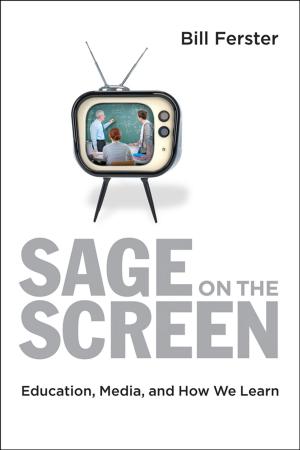User Unfriendly
Consumer Struggles with Personal Technologies, from Clocks and Sewing Machines to Cars and Computers
Nonfiction, Science & Nature, Science, Other Sciences, History, Americas, United States| Author: | Joseph J. Corn | ISBN: | 9781421401935 |
| Publisher: | Johns Hopkins University Press | Publication: | November 1, 2011 |
| Imprint: | Language: | English |
| Author: | Joseph J. Corn |
| ISBN: | 9781421401935 |
| Publisher: | Johns Hopkins University Press |
| Publication: | November 1, 2011 |
| Imprint: | |
| Language: | English |
We’ve all been there. Seduced by the sleek designs and smart capabilities of the newest gadgets, we end up stumped by their complicated set-up instructions and exasperating error messages. In this fascinating history, Joseph J. Corn maps two centuries of consumer frustration and struggle with personal technologies.
Aggravation with the new machines people adopt and live with is as old as the industrial revolution. Clocks, sewing machines, cameras, lawn mowers, bicycles, electric lights, cars, and computers: all can empower and exhilarate, but they can also exact a form of servitude. Adopters puzzle over which type and model to buy and then how to operate the device, diagnose its troubles, and meet its insatiable appetite for accessories, replacement parts, or upgrades. It intrigues Corn that we put up with the frustrations our technology thrusts upon us, battling with the unfamiliar and climbing the steep learning curves. It is this ongoing struggle, more than the uses to which we ultimately put our machines, that animates this thought-provoking study.
Having extensively researched owner’s manuals, computer user-group newsletters, and how-to literature, Corn brings a fresh, consumer-oriented approach to the history of technology. User Unfriendly will be valuable to historians of technology, students of American culture, and anyone interested in our modern dependence on machines and gadgets.
We’ve all been there. Seduced by the sleek designs and smart capabilities of the newest gadgets, we end up stumped by their complicated set-up instructions and exasperating error messages. In this fascinating history, Joseph J. Corn maps two centuries of consumer frustration and struggle with personal technologies.
Aggravation with the new machines people adopt and live with is as old as the industrial revolution. Clocks, sewing machines, cameras, lawn mowers, bicycles, electric lights, cars, and computers: all can empower and exhilarate, but they can also exact a form of servitude. Adopters puzzle over which type and model to buy and then how to operate the device, diagnose its troubles, and meet its insatiable appetite for accessories, replacement parts, or upgrades. It intrigues Corn that we put up with the frustrations our technology thrusts upon us, battling with the unfamiliar and climbing the steep learning curves. It is this ongoing struggle, more than the uses to which we ultimately put our machines, that animates this thought-provoking study.
Having extensively researched owner’s manuals, computer user-group newsletters, and how-to literature, Corn brings a fresh, consumer-oriented approach to the history of technology. User Unfriendly will be valuable to historians of technology, students of American culture, and anyone interested in our modern dependence on machines and gadgets.















